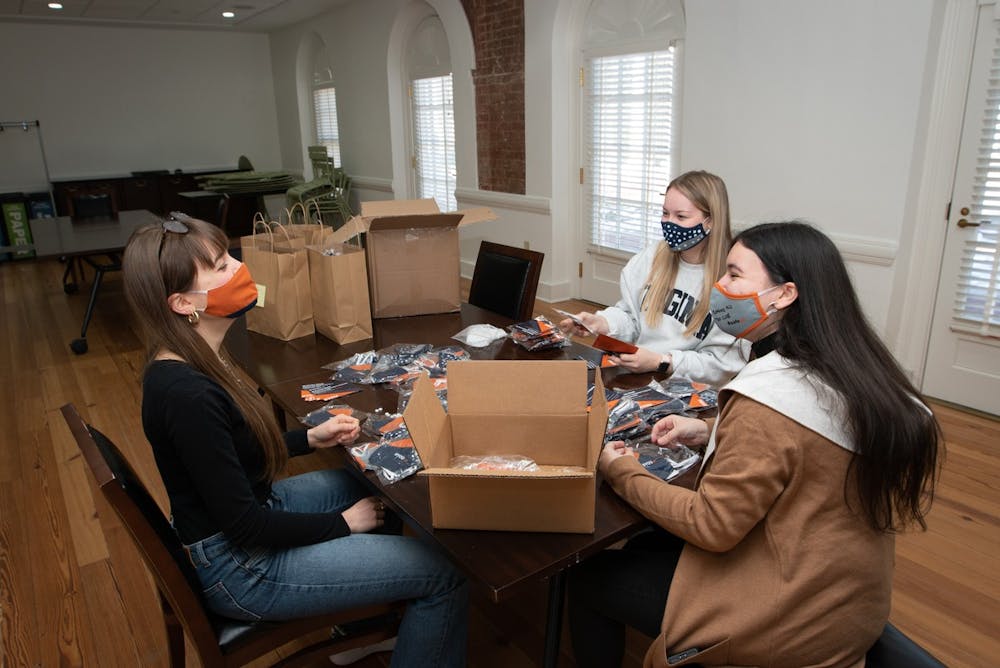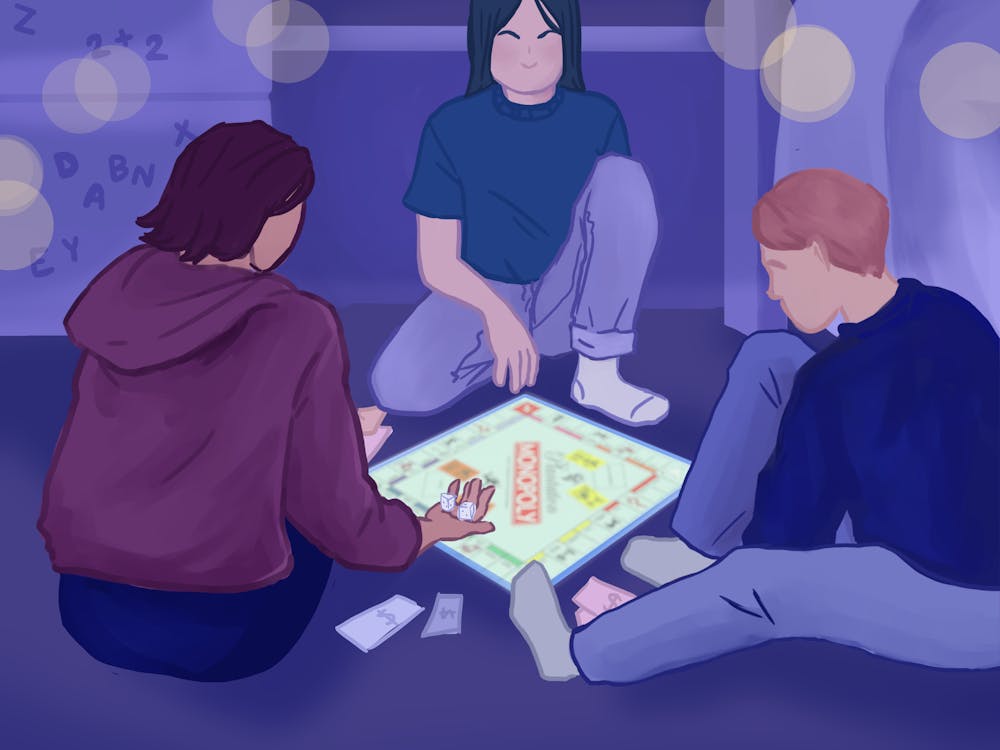Every fall, around 25 second-year students are selected to become fellows in the Meriwether Lewis Institute for Citizen Leadership program. This past summer, the pandemic forced the fellows to get creative with their projects as they sought solutions for challenges COVID-19 presented the University students. The 25 fellows rose to the challenge, and from the program came the #YOUVa student-run initiative. This particular campaign — currently headed by nine fellows that wished to continue developing the initiative into the school year — is dedicated to making information accessible for students, encouraging students to follow CDC guidelines and keeping the University community safe.
The MLI program began in 2014 and aims to prepare students for leadership roles through academics, their summer program and engagement over 2.5 years. In the summer after their second year, the 25 MLI Fellows are asked to develop a project dedicated to improving the University. Each of the projects proposed during this past year's MLI summer program had unique aspects that were later combined to create the #YOUVa peer-to-peer health initiative.
#YOUVa was initially only an Instagram social campaign, but has since developed an app called HooSpace to prevent overcrowding and planned a variety of socially-distanced events for students to attend. The initiative has also worked to distribute free masks to University students and put up posters around Grounds in an effort to make COVID-19 resources more accessible to the community.
“A lot of people don't really care about the consequences of getting COVID because we’re young, but there’s a lot of collateral damage to the people around us like the Charlottesville community,” said Hector Terrazas, MLI fellow and third-year College student. “I think that's why it's pretty important to keep doing this because there's a lot more damage being done than people realize.”
Many of the initiative’s goals stem from the experiences of the involved students, such as reluctance to read long weekly emails sent out by the University and a lack of access to masks.
As an ongoing solution, they create two-minute clips on Instagram Live and four-to-five slide posts that summarize the weekly newsletter sent out by the University. In the videos and posts they aim to highlight key points in a casual and informal setting from a student perspective.
“We've honestly been the ones that have had our college experiences impacted, so having #YOUVa be there to provide us with resources from students themselves for students, it just seemed like a no-brainer to be a part of that initiative,” said Nia Augustine, MLI fellow and fourth-year Education student.
This past semester, #YOUVa students could also be found around Grounds tabling whenever they could, handing out free masks at the North Grounds and Scott Stadium prevalence testing sites.
The custom-designed, sustainably made masks were produced in partnership with Nest, a nonprofit aiming to build a handworker economy in hopes of increasing global workforce inclusivity and improving women’s wellbeing. The students involved in #YOUVa were introduced to Nest by MLI administrators Nicole Eramo, assistant vice president of student affairs, and Morgan Stearns, program coordinator for the Office of the Vice President and Chief Student Affairs Officer. Nest was able to connect #YOUVa to a small business La Casa Cotzal based in San Pedro Sacatepéquez, Guatemala, that produced 5,000 of the masks in collaboration with about 30 local artisans.
The partnership with Nest and a donation from University alumna Louise Parzick made the production of the 5,000 masks possible. In the future, #YOUVa hopes to order more masks but is uncertain of when that may be. The masks can also be found with peer health educators in goodie bags containing hand sanitizer and lawn signs that encourage adhering to CDC guidelines.
“Every time I'm wearing my mask from #YOUVa, I'm reminded that I have to protect others as well as protect myself,” said Mica Vilanova, MLI fellow and third-year College student.
Within the initiative, members also work on other projects based on their interests. For example, students who are interested in outdoor projects have worked to present interesting displays that students can see on their walks around Grounds such as posters on Lawn room doors and the Brighter Together project. The Brighter Together project is a series of projection mapping artworks on buildings around Grounds by local artist Jeff Dobrow that will be shown over the next two months with the hopes of bringing the community together after a difficult year.
“[Brighter Together] was an initiative to start slowly providing in person safety events,” Vilanova said. “We wanted to make that project to bring a little bit of joy to students that were passing by.”
They’ve also worked with the Office of the Dean of Students to provide students opportunities for safe outdoor gatherings around Grounds in the form of fire tables that students can reserve online to use with friends. There are currently a total of five of these fire tables located in the McIntire Amphitheater, outside of Monroe Hall and next to Alderman Library.
#YOUVa has also released an app called HooSpace that informs the user of how many people are in any given location on Grounds in an effort to stop overcrowding. The separate subgroups communicate through GroupMe to create the umbrella campaign of #YOUVa, which acknowledges and emphasizes the role of peer influence in minimizing the coronavirus’ effects on the University and Charlottesville community.
“I think the clearest thing about the #YOUVa campaign is that this is a peer-to-peer initiative, so we believe that students within other students have a great influence,” Vilanova said. “We want to promote safety guidelines through the influence the students have within their peers.”
Similarly, Augustine expressed the importance of community in a time that makes it difficult to connect and meet in-person. Many of the projects undertaken by the #YOUVa initiative, such as the Brighter Together project, the fireplaces and masks contribute to the goal of strengthening the community.
“I think that's a large part of what this whole pandemic has shown us— we need to continue to build community,” Augustine said. “To build community we need to be compassionate and empathetic and hold people accountable.”
The students involved in the initiative are always listening for input from the community through DMs to the official Instagram @youva.safe and emails to youva@virginia.edu. Students who are interested in becoming involved can reach out through the #YOUVa Instagram or through email.
Despite the challenges that students face on a daily basis due to COVID-19, initiatives like #YOUVa are diligently working towards providing information and resources to the University community.
“One goal that we're trying to achieve next [is] to see what are the best ways to bring people together, build those bridges and create connections between them and another person that might bring them into a beautiful friendship,” Vilanova said.






